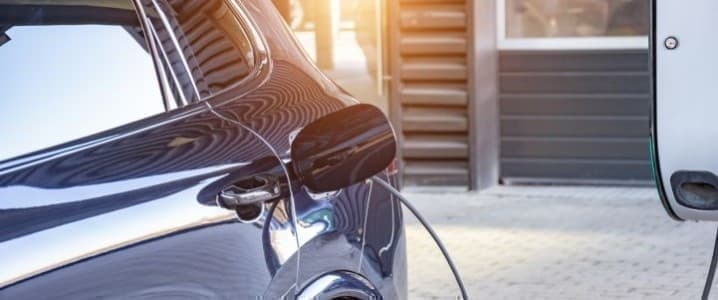Falling private demand for electric vehicles (EVs) has dominated headlines throughout the year, fueling car owners’ concerns about the high cost of the switch.
Automotive industry data provided by industry body Society of Motor Manufacturers and Traders (SMMT) showed sales to private buyers fell 7.7 percent in April.
This week’s SMMT data showed a similar trend, with sales of electric vehicles to the general public falling by a further 2 percent in May.
The decline has led to calls for the government to introduce taxpayer-funded incentives for buyers and led to a story in the Telegraph and Daily Mail that British car owners’ interest in purchasing electric cars is waning.
It has also called into question the British carmaker’s ability to meet looming targets under the government’s Zero Emission Vehicle (ZEV) mandate, which fines operators who fail to meet certain EV sales targets.
But experts say private sales data from the SMMT, the most widely used benchmark in the UK car industry, is ‘flawed’ and ‘inaccurate’.
They claim that consumers are increasingly buying electric cars using salary sacrifice schemes, which allow employees to deduct a monthly amount from their wages to lease electric cars at a much lower cost. Related: Canadian oil executives scrap proposed emissions cap for oil and gas production
Salary sacrifices have become a major driver of sales in Britain, but the SMMT data categorizes these under fleet purchases or corporate purchases and does not include them in private demand figures.
“How individuals purchase electric cars is often overlooked due to the way data is presented, especially in the SMMT figures,” said Fiona Howarth, CEO of Octopus’ electric vehicle leasing business. City AM
“Let’s be clear: Salary sacrifice cars sit in the driveway of typical drivers – they’re used for school runs, weekly errands and family outings, so why should they be counted as fleet cars?” she said.
Octopus Electric Vehicles delivers around a thousand cars every month and says order numbers are up 40 percent on last year, with more than 5,000 companies signed up. Other major UK providers include SalSac, Fleet Alliance, the Electric Car Scheme and Pink Salary Exchange.
And whether private retail demand for electric vehicles is in trouble is hotly debated within the sector. The boss of Britain’s third largest car dealer Vertu Motors, Robert Forrester, has said the government’s ZEV mandate risks leaving manufacturers “underwater” due to a lack of consumer demand.
But Ben Nelmes, CEO of the NGO New AutoMotive, said falling private demand for electric vehicles is a “myth based on flawed data.”
In addition to salary sacrifices, private lease or flexible car financing options could ultimately be categorized as company-maintained vehicles, he explained. Ex-fleet, used cars now owned by private individuals are also not recognized.
“If current trends continue, there will be no new petrol or diesel cars on UK roads by 2029. Sales of electric cars are at a record high. Consumers buy electric cars because they are not only good for the planet, but also because they are good for their wallets. Nelmes said.
It is impossible to extract the significance of salary sacrifices from the general data as neither the relevant government agencies, the DVLA and HMRC, nor the pension providers keep the data.
Quentin Wilson, the motoring journalist and founder of campaign group FairchargeUK, said: “We need to collect accurate end-user data to get a clearer picture of the private-fleet divide. The anti-EV narrative claiming that private buyers are interested in electric vehicles has waned, supported by inaccurate data.”
In a statement, SMMT CEO Mike Hawes said this City AM. “Registrations of salary sacrifices are not listed separately as there is currently no official way to measure them as neither HMRC, DVLA or scheme administrators provide this data.”
Hawes said the agency was working with HMRC and the DVLA, which provides new vehicle data, to try to “close this gap as it becomes an increasingly important part of the market.”
He added: “However, it is worth remembering that while this tax incentive helps accelerate the uptake of electric cars, it is not available to all consumers as it relies on an employer offering this benefit to its employees .”
“The electric vehicle market is growing but needs further action, especially for private consumers who lack tax incentives, if we are to achieve our shared net zero ambitions.”
By CityAM
More top reading from Oilprice.com:
